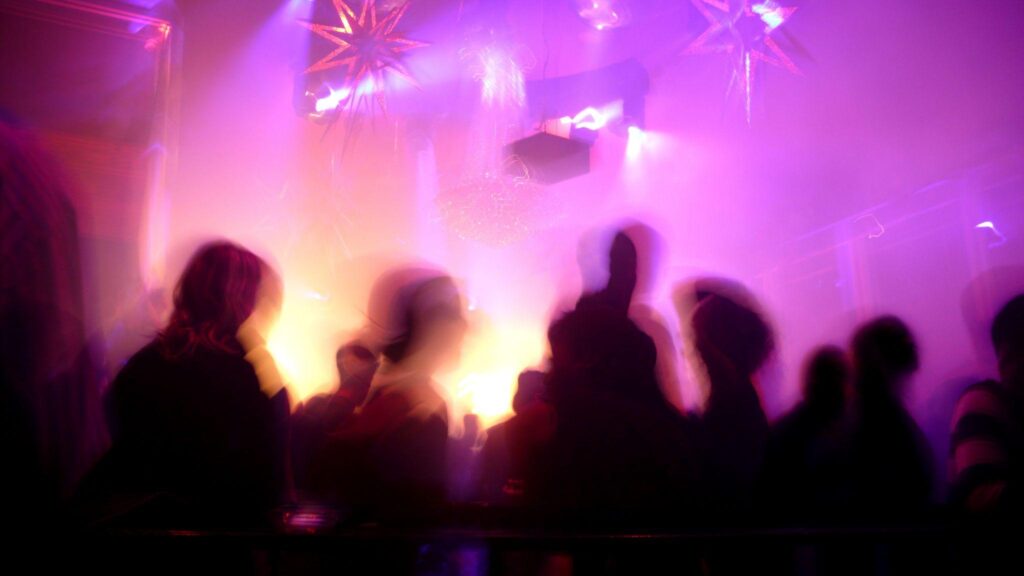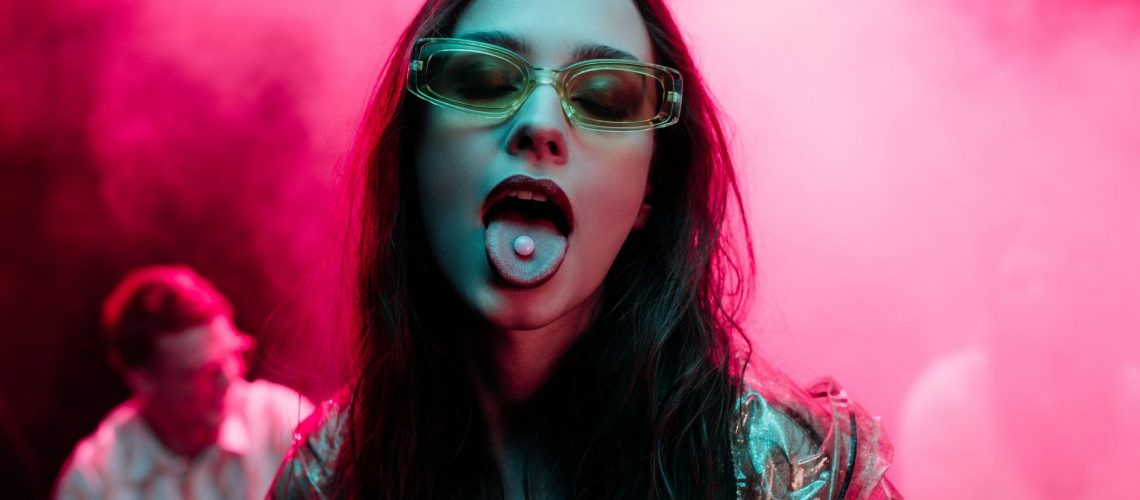Party drugs, or club drugs, are common in bars and nightclubs and at raves, concerts, and parties.
The psychoactive substances in club drugs like MDMA and ketamine can make you feel euphoric and change the way you see colors and experience sounds. Club drugs can also boost your energy levels and reduce your inhibitions.
But these drugs have a dark side. They can be dangerous and even deadly.
Party drug effects are wide ranging and can include increased heart rate and blood pressure, sweating and dehydration, dangerous rise in body temperature, blurred vision, memory loss, seizures, numbness in the limbs, and even death.
5 Common Club Drugs
Club drugs come in many varieties, including hallucinogens, stimulants, inhalants (like nitrous oxide), and central nervous system depressants. These psychoactive drugs can affect your brain, body, and self-control in various ways.
Here are five of the most common party drugs:
Ecstasy
MDMA (methylenedioxymethamphetamine) is ecstasy’s chemical name. Street names include molly, X, E, M&M, Adam, roll, and essence. Ecstasy is both a stimulant and a hallucinogen. It heightens sensory perception and is sometimes called “the love drug” because it causes the brain to release a surge of oxytocin, the bonding hormone.
High doses of MDMA can affect the body’s ability to regulate temperature. This can lead to a spike in body temperature that can result in stroke, heart failure, liver and kidney failure, or even death.
Ketamine
Originally developed as an anesthetic, ketamine is now used in low doses to treat depression. It’s a common club drug used to get high, but it’s also used as a date rape drug. In higher doses, ketamine can make it hard to speak or move. This phenomenon is known as a “k hole.”
Other dangerous side effects of ketamine include blurry vision, chest pain or shortness of breath, problems swallowing, fast heartbeat, sweating, anxiety, and confusion.
LSD
One of the most popular psychedelic drugs, LSD (lysergic acid diethylamide), also known as acid, causes auditory and visual hallucinations. It’s a common club drug.
While it’s hard to overdose on LSD, it’s not uncommon for people to have a “bad trip,” with side effects ranging from anxiety and panic attacks to flashbacks, paranoia, and even seizures. Experiencing a bad trip around strangers in a loud environment like a rave or club can feel unbearable.
Methamphetamine
Also called meth, crystal meth, ice, speed, or crank, methamphetamine is a stimulant that causes increased attention, alertness, and energy. It’s a popular party drug at all-night raves, since it keeps people awake and on the dance floor for long periods of time.
The brand-name medication Desoxyn® is a legal form of methamphetamine used to treat ADHD and obesity. But most meth circulating in the club scene is made illegally. Meth can cause unpleasant and dangerous side effects, from restlessness and agitation to sweating, nausea, and trouble breathing. Long-term abuse can damage parts of the brain.
Phencyclidine (PCP)
Also called angel dust, elephant tranquilizer, lovely, Love Boat, crystal, or hog, PCP is known for producing a dissociative or out-of-body experience. It was originally developed as an anesthetic but was discontinued in the 1960s due to negative side effects. Yet it persists as an illegal recreational drug.
PCP is infamously known for giving users a false sense of strength and even invincibility, which has led to horrific acts of violence. When mixed with other sedatives like alcohol or depressants, it can lead to coma or even death.
Other popular club drugs include mushrooms (shrooms), cocaine, Xanax, rohypnol (roofies), and GHB (gamma-hydroxybutyric acid).

Get Help with Substance Issues
Using these and other club drugs can lead to experimentation with other drugs, like prescription opioids, alcohol, and heroin. If you or someone you care about is abusing club drugs or other substances, the team at Del Arroyo Recovery Center can help.
We offer expert addiction treatment services at our private luxury rehab center in Agoura Hills, California. We tailor treatment programs to your needs to help you get on the road to recovery. Contact our helpful team at 877-535-0636 today to learn more.

